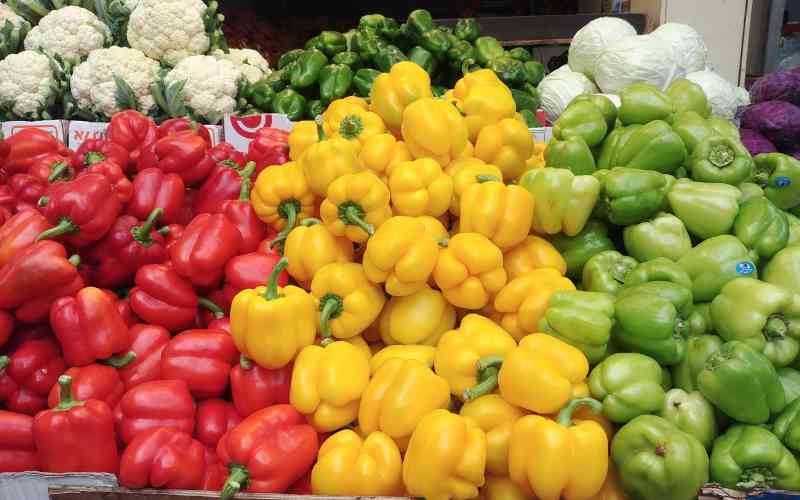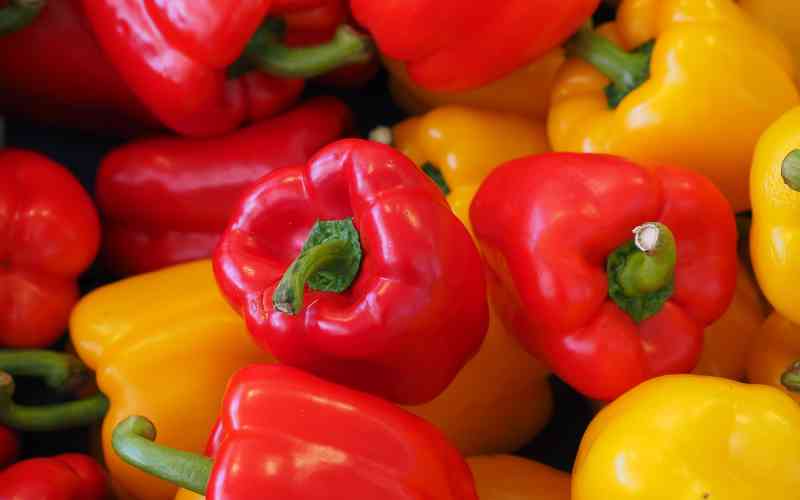Studies have shown that many chefs consider roasting peppers over a gas flame. Some of them prefer roasting under the broiler. It’s simply a basic skill in the kitchen. It involves searing a pepper until the skin is charred, making the flavor of the pepper’s flesh develop.
Why do they do this? Many people assume that this series of actions make peppers hotter. But does roasting peppers make them hotter? Read on to find out in this article. We will show you if roasting peppers make them hotter or if it’s just a silly myth.
Contents
Does Roasting Peppers Make Them Hotter?
Roasting peppers can sometimes make them slightly hotter. However, it depends on the type of pepper and how they are roasted.
When peppers are roasted, the heat can cause some of the capsaicin in the peppers (the compound responsible for the spicy sensation) to be released.
It makes the peppers a bit spicier. However, this effect can vary depending on the pepper’s starting level of spiciness and how thoroughly it is roasted.
Furthermore, roasting can help to mellow out the heat in some peppers, making them less spicy. This is because the high heat of roasting can break down some of the capsaicin molecules, making them less potent.
But then, do not forget that while roasting peppers can sometimes make them hotter, the effect is not always predictable. It depends on various factors, including the type of pepper, the degree of roasting, and the individual’s sensitivity to capsaicin.
Read: 7 Best Substitutes For Tomato
Why Do Jalapeños And Other Spicy Peppers Lose Their Spiciness After Being Cooked Or Heated?
Jalapeños and other spicy peppers contain compounds called capsaicinoids that are responsible for their spiciness. Capsaicinoids are oil-soluble and are mainly found in the seeds and membranes of peppers.
When these compounds come into contact with your mouth or skin, they bind to heat receptors and cause a sensation of burning or spiciness.
When jalapeños and other spicy peppers are cooked or heated, the capsaicinoids can be partially or destroyed, which can reduce the spiciness of the peppers.
This is because heat can cause the capsaicinoids to break down, especially if the peppers are exposed to high heat for a prolonged period.
Furthermore, cooking or heating can also change the way the capsaicinoids are distributed throughout the pepper. It potentially makes them less concentrated in certain parts of the pepper.
This can also reduce the spiciness. Do you know that the longer you cook your peppers, the hotter the dish will become?
Note that not all cooking or heating methods will reduce peppers’ spiciness in the same way. For example, if you roast or grill jalapeños, it may enhance their spiciness by caramelizing the sugars in the pepper.
It will also concentrate the capsaicinoids. Boiling it or blanching it may reduce its spiciness.
Read: Can I Use Regular Tomatoes For Feta Pasta?
How Do You Properly Cook Hot Peppers While Maintaining Their Spiciness?

To properly cook hot peppers while maintaining their spiciness, you should follow these tips:
Use fresh and ripe hot peppers.
The spiciness of the peppers can vary depending on how ripe they are, so it’s important to use fresh and fully ripe peppers.
Avoid overcooking the peppers.
Overcooking can break down the capsaicin molecules, which are responsible for the spiciness of the peppers. So, it’s best to cook them quickly, either by sautéing, grilling, or roasting.
Keep the seeds and membranes intact.
The seeds and membranes of the peppers contain most of the capsaicin, so keeping them intact will help maintain the spiciness of the peppers.
Use cooking techniques that preserve the heat.
Certain cooking techniques, like frying or boiling, can reduce the spiciness of the peppers. Instead, try grilling, roasting, or sautéing in oil.
Use the right amount of peppers.
The spiciness of hot peppers can vary widely, so it’s essential to use the right amount to achieve the desired heat level.
Remember, wearing gloves when handling hot peppers is always a good idea to avoid getting the oils on your skin.
Read: What To Serve With Vegetable Soup (9 Delicious Sides Dishes)
Conclusion
Different types of peppers have different levels of spiciness. That’s why the effect of cooking on the perceived spiciness of a dish can vary depending on the type of pepper used.
Roasting, cooking, and grilling may have different types of effects on your peppers. We’ve tried roasting, you should also try it too.
